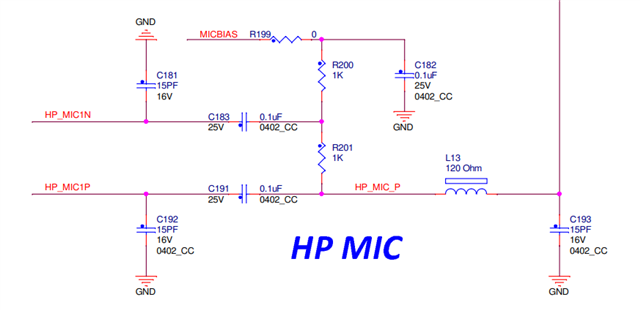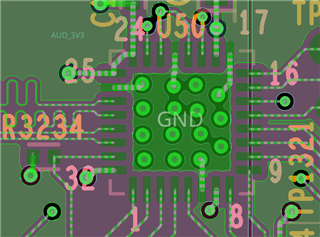Other Parts Discussed in Thread: TPA2012D2
Tool/software:
Dear,
Please find the attached schematic for your review. I would appreciate your feedback and any recommendations.
I am using the TLV320AIC3104IRHBR audio codec interfaced with the NXP i.MX8 processor (MIMX8ML6CVNKZAB).
During the bring-up process, I encountered some issues. Hardware-wise, all voltages have been verified as per the schematic, and everything seems fine. However, I am facing software-related errors (details below).
root@imx8mp-lpddr4-evk:~# dmesg | grep tlv320
[ 5.855426] tlv320aic3x 2-0018: supply IOVDD not found, using dummy regulator
[ 5.867669] tlv320aic3x 2-0018: supply DRVDD not found, using dummy regulator
root@imx8mp-lpddr4-evk:~# groups | grep audio
I have also explored potential solutions through ChatGPT but haven't been able to identify the root cause. Could you please assist with a hardware and software review and provide any necessary feedback?
Looking forward to your insights.
Best regards,
Santhosh



